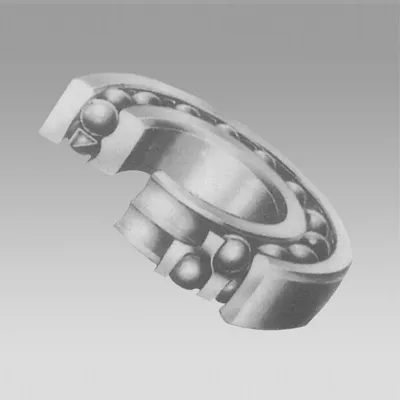
Nov . 13, 2024 22:24 Back to list
why are ball bearings used in machinery
Why Are Ball Bearings Used in Machinery?
Ball bearings are essential components in various types of machinery, playing a critical role in enhancing performance, minimizing maintenance, and ensuring longevity
. Understanding the reasons behind their widespread use helps illuminate their importance in engineering and industrial applications.At the core of a ball bearing's functionality is its ability to reduce friction between moving parts. Most machines involve rotational movement, where components like shafts and wheels are in constant motion. When two surfaces slide against each other, friction generates heat and requires more energy to maintain operation. This not only wastes energy but also leads to wear and tear over time. Ball bearings, by introducing a layer of ball elements between these surfaces, convert sliding friction into rolling friction, significantly reducing resistance. This translates to improved efficiency in machine operations and reduced energy consumption.
Another critical advantage of ball bearings is their ability to support both radial and axial loads. Radial loads are those that are perpendicular to the shaft, while axial loads are parallel. Ball bearings are designed to accommodate these forces, which makes them versatile for various applications, from electric motors to conveyor systems. By effectively managing load distribution, they contribute to the overall stability and performance of machinery.
why are ball bearings used in machinery

The durability and reliability of ball bearings are additional reasons for their prevalence in machinery. These components are designed to withstand substantial stress and are made from high-quality materials like steel or ceramic. Many modern ball bearings also come with coatings or treatments that enhance their resistance to corrosion, wear, and extreme temperatures. This durability extends the lifespan of machinery, reducing the frequency of repairs and the need for replacements, thereby saving companies time and money.
Ease of maintenance is another significant benefit of ball bearings. Equipment can often be designed to allow for easy access to bearings, facilitating quicker inspections and replacements. Furthermore, because they operate so efficiently, bearings tend to require less frequent lubrication than traditional sliding elements. This simplified maintenance routine means less downtime, allowing machinery to operate smoothly and continuously.
In sectors that demand high precision, such as aerospace and medical equipment, the importance of ball bearings is magnified. The accuracy and reliability provided by high-quality bearings are crucial for maintaining tight tolerances and ensuring safe operation. In these applications, the consequences of bearing failure can be severe, making the choice of the right bearing absolutely critical.
In conclusion, the reasons for the extensive use of ball bearings in machinery are manifold. Their ability to reduce friction, support various loads, and offer durability makes them indispensable in both industrial and consumer applications. The ease of maintenance and the critical role they play in high-precision environments further emphasize their importance. As technology advances and machinery becomes more sophisticated, the demand for reliable and effective components like ball bearings will undoubtedly continue to grow, solidifying their place as a cornerstone of modern engineering.
Latest news
-
Grooved Ball Bearing Design and Functionality
NewsJun.04,2025
-
Concrete Mixer Bearing Load Capacity Testing
NewsJun.04,2025
-
6004 Bearing Dimensions in Robotic Joint Designs
NewsJun.04,2025
-
Advantages of Single-Row Deep Groove Ball Bearings
NewsJun.04,2025
-
Applications of Deep Groove Ball Bearings in Automotive Systems
NewsJun.04,2025
-
Innovations in Bearing Pressing Machine Design
NewsJun.04,2025
